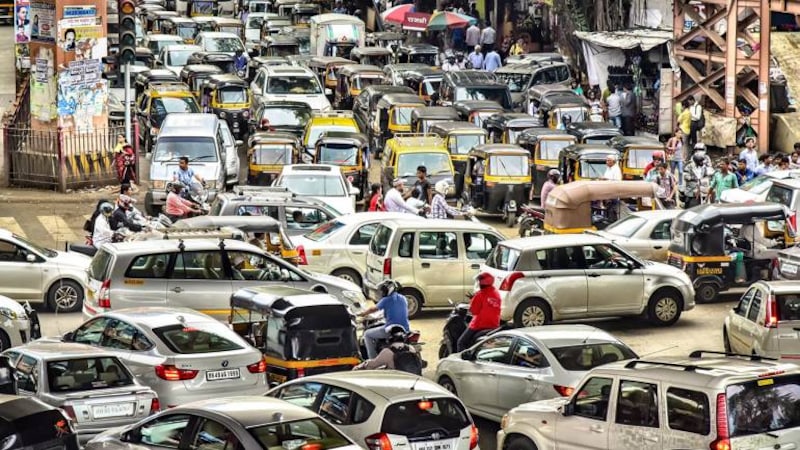smart development
The road to `zero defect, zero effect’ is circular
India’s time for a `circular economy’ has come. This has to be brought about through strict enforcement, strong people’s participation and proactive corporate involvement.
In August 2014, Prime Minister Narendra Modi gave a call to Indian entrepreneurs to adopt a ‘zero defect, zero effect’ mantra in their products—a direct reference to the need to make things without causing environmental harm.
In September 2019, large parts of India were smarting under a wave of floods that brought bustling metropolises such as Mumbai and Hyderabad to their knees. Hundreds of acres of land remained submerged for weeks on end by overflowing rivers from Assam to Gujarat.
It is easy to be dazed by the impact of climate change that has reached our homes. But everyone—governments, companies, politicians, and consumers—needs to act now. Avoiding buildup of industrial and household waste is a good starting point.
India’s time for a `circular economy’ has come. This has to be brought about through strict enforcement, strong people’s participation and proactive corporate involvement.
How do we prolong the lifecycle of products, recondition them and cut down on waste generation? There are examples that India can, and needs to, draw upon.
A.P.C., a French denim brand, takes back used pairs from consumers, repairs them if necessary, and sells them under what is branded a ‘butler service’.
In some municipal facilities in Europe, consumers don’t own or buy lighting products. For instance, in some such areas, Dutch lighting and electronics maker Philips installs, owns and services lighting for consumers. The consumers pay for the services, and at the end of the service contract the lighting systems can be upgraded and reused, or all materials and parts can be returned for repurposing or recycling, minimising material waste.
Sweden’s H&M, a mass retail apparel brand, has a worldwide policy of offering consumers who return its old garments discounts on new ones; it reconditions the old ones to sell at cheaper prices, thus prolonging the lifecycle of the fabrics and fibre used.
According to Jocelyn Blériot, executive officer of the Ellen MacArthur Foundation, “several building blocks of circularity are deeply ingrained in Indian habits, as exemplified by the high rates of utilisation and repair of vehicles and the distributed recovery and recycling of materials post-use”.
“Often handled informally, these activities provide the only source of livelihoods to some of the poorest populations. By turning these existing trends into core development strategies, India could generate significant economic savings, massively cut down on carbon emissions,” Bleriot wrote in a blog for the World Economic Forum.
In India, the environment ministry has aimed to double the recycling rate of key materials to 50 percent in the next five years and enable upcycling of waste.
A draft National Resource Efficiency Policy envisions setting up a National Resource Efficiency Authority which will help develop resource efficiency strategies for different sectors and adopt them into a three-year action plan.
Seven key sectors have been identified—automobile, plastic packaging, building and construction sector, electrical and electronic equipment sector, solar photo-voltaic sector, and steel and aluminium sector—for initial focus.
A truly circular economy, however, would need more than a policy framework. It will also require nimble, `smart’ thinking.
Factories that use large amounts of water should be necessarily made to take a variety of steps to save energy and improve efficiency. Using a turbine to generate power from the water used at a factory for things like cooling, air conditioning, or for generating power at a food processing factory from biogas produced from organic waste, should be made mandatory.
For example, factory energy management systems (FEMSs) should gradually be made compulsory, to identify all the different forms of power consumption and perform centralised management in conjunction with the factory's production plans to ensure that electric power is used efficiently.
Consumer durable makers would have to make things keeping in mind their recyclability value. Consumers should get used to paying for the service of a product, rather than owning a product and then dumping it away later. It will require a mindset change. But it’s worth it. Gradualism is passé. It’s time to go for broke.
ADVERTISEMENT
-

How smart strategies, minimum funds can help India breathe free
~ ,

Formula E: Paving the way for sustainable motoring
~ Guest, Contributor

India needs to re-think at least five policies in respect of waste management
~ RNBhaskar, Consulting Editor
-

India has the right talk but not the right action
~ Rnbhaskar, Consulting Editor

The road to `zero defect, zero effect’ is circular
~ Gaurav Choudhury, Consulting Editor

Responsible Banking: Financing the Future
~ Moneycontrol Contributor, Contributor
-

Fueling sustainable development goals with financial instruments
~ Moneycontrol Contributor, Contributor


